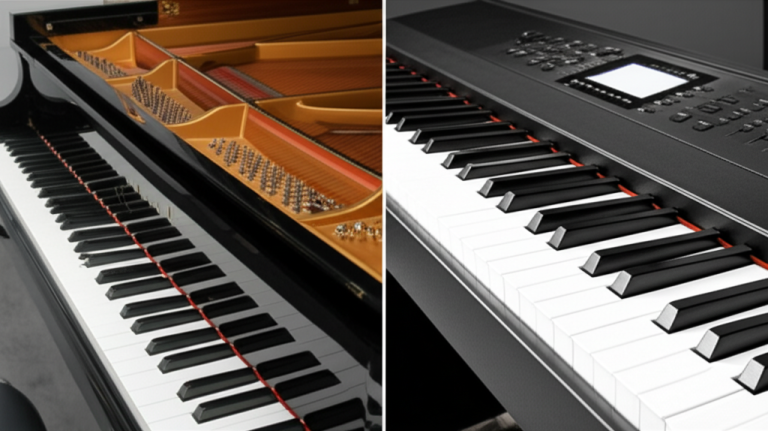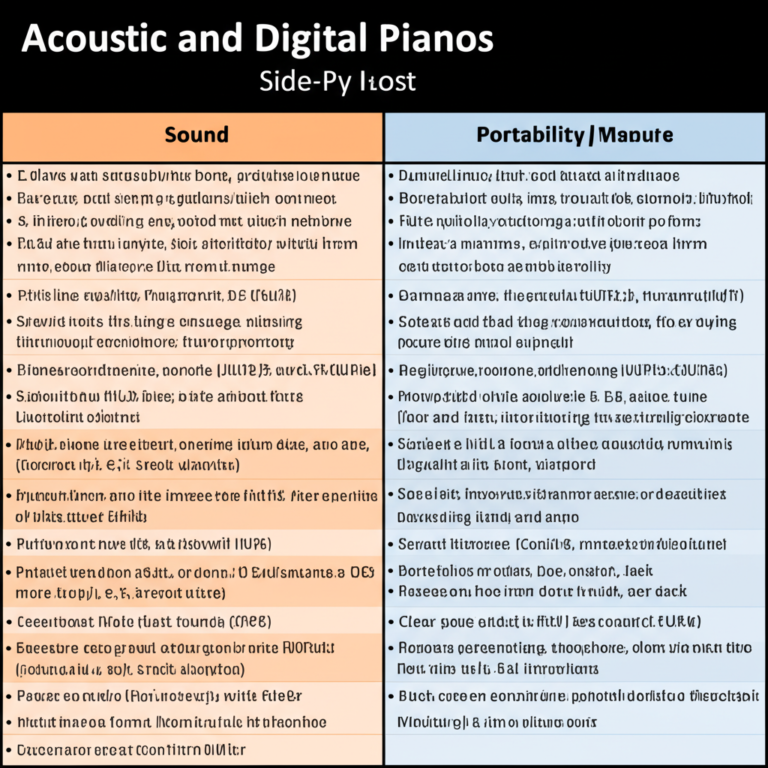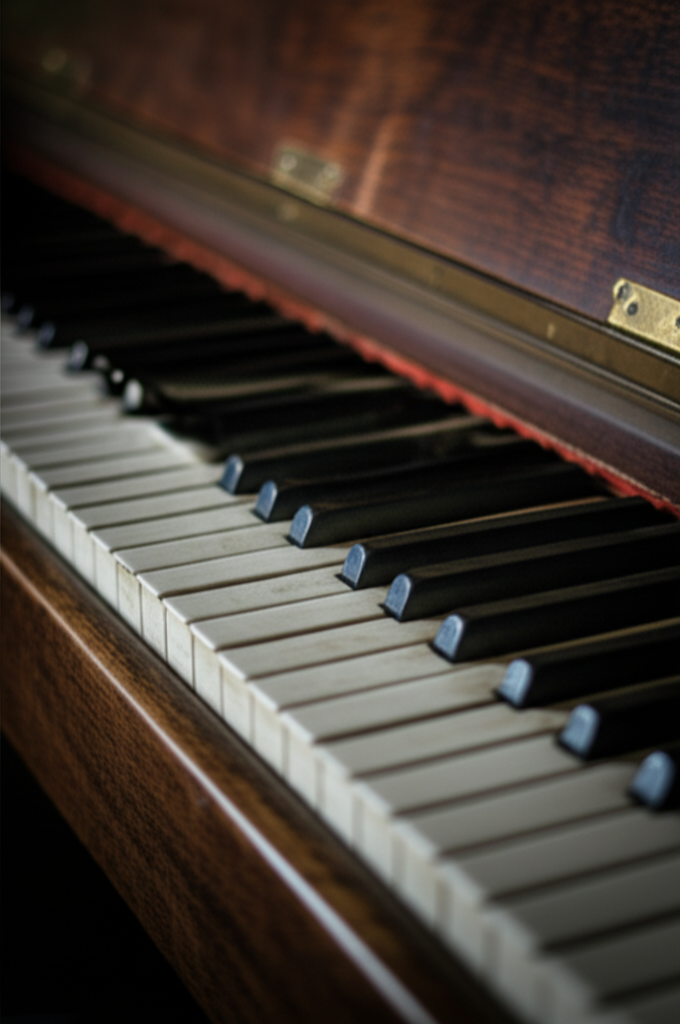Support our educational content for free when you buy through links on our site. Learn more
What Piano Should I Buy First? 🎹 Top 7 Picks for 2025
Imagine stepping into a music store, surrounded by gleaming keyboards and majestic grand pianos, wondering: Which one is truly the best first piano for me? Whether you’re dreaming of playing Chopin or just want to tickle the ivories for fun, choosing your first piano can feel like navigating a maze. But don’t fret! We’ve cracked the code with expert insights, hands-on reviews, and insider tips to help you find the perfect piano that fits your style, space, and budget.
Did you know that nearly 70% of beginner pianists start on digital pianos because of their affordability and versatility? Yet, many still crave the authentic touch of an acoustic. In this guide, we’ll unravel the pros and cons of digital vs. acoustic, spotlight the best beginner-friendly models like the Casio Privia PX-160, and share savvy buying advice that’ll save you time and money. Ready to embark on your piano journey with confidence? Let’s dive in!
Key Takeaways
- Digital pianos are often the best first choice for beginners due to affordability, portability, and low maintenance.
- Weighted keys and authentic touch are crucial features to look for to develop proper technique.
- Top beginner models include the Casio Privia PX-160, Yamaha P-125, and Roland FP-10.
- Acoustic pianos offer unmatched sound and feel but require more space, maintenance, and investment.
- Set a realistic budget and consider your space before purchasing to avoid common pitfalls.
- Try before you buy whenever possible to ensure the piano feels right for you.
CHECK PRICE on top beginner digital pianos:
- Casio Privia PX-160: Amazon | Sweetwater
- Yamaha P-125: Amazon | Musician’s Friend
- Roland FP-10: Amazon | Roland Official Website
Table of Contents
- Your First Piano Adventure Begins!
- ⚡️ Quick Tips and Facts: Your Fast Track to Piano Wisdom
- The Grand Piano Journey: A Brief History of Keyboard Instruments
- Acoustic vs. Digital Pianos: Unraveling the Beginner’s Dilemma
- The Timeless Majesty: Exploring Acoustic Pianos
- The Modern Marvel: Embracing Digital Pianos
- Hybrid Pianos: The Best of Both Worlds?
- Setting Your Budget: Navigating the Financial Keys 💰
- Where to Buy Your First Piano: Navigating the Marketplace
- Common Pitfalls to Avoid When Buying Your First Piano 🚧
- Our Top Recommendations: Stellar Digital Pianos for Beginners
- Beyond the Keys: Essential Accessories for Your Piano Journey 🎶
- Your First Practice Session: Getting Started on the Right Note!
- The Lifespan of Your First Piano: When to Consider an Upgrade
- Conclusion: Your First Piano Journey Starts Now!
- Recommended Links
- FAQ: Burning Questions Answered
- Reference Links
Your First Piano Adventure Begins!
To start your piano journey, check out our guide on the best piano for beginners and discover the perfect instrument for you.
Quick Tips and Facts: Your Fast Track to Piano Wisdom
Here are some essential tips and facts to get you started:
- Acoustic vs Digital Pianos: Consider the differences to determine the best type for you.
- Budget: Set a budget and stick to it.
- Space: Measure your space to ensure the piano fits comfortably.
- Touch and Feel: Try before you buy to ensure the piano feels right for you.
- Maintenance: Consider the maintenance costs of acoustic pianos.
- Brand: Research reputable brands like Yamaha, Casio, and Roland.
For more information on the best pianos for adult beginners, visit our article on Discover the 7 Best Pianos for Adult Beginners in 2024!.
Key Considerations
When choosing a piano, consider the following key factors:
- Type of Music: Think about the type of music you want to play.
- Commitment: Consider your commitment to playing and practicing.
- Budget: Set a budget and stick to it.
- Space: Measure your space to ensure the piano fits comfortably.
The Grand Piano Journey: A Brief History of Keyboard Instruments
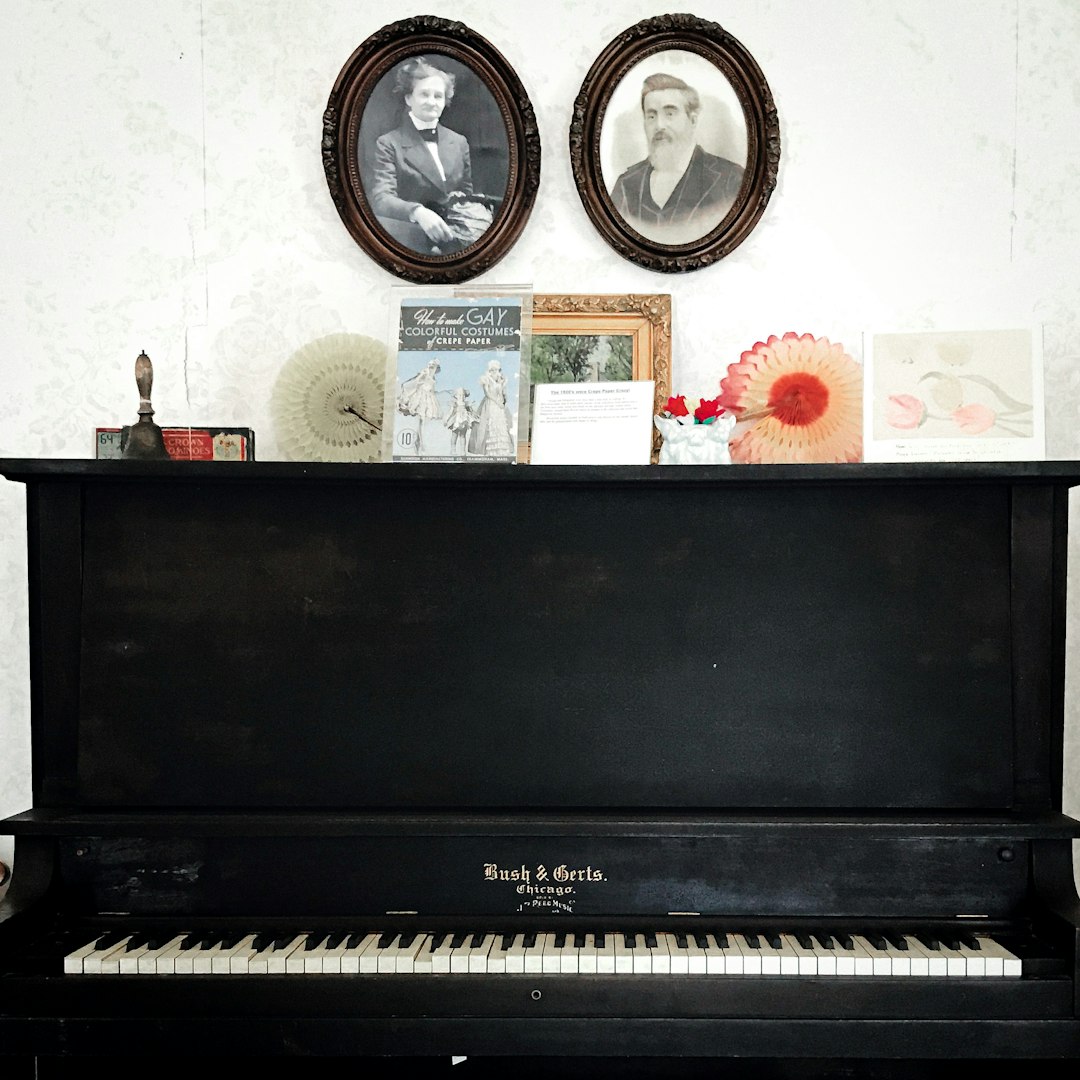
The history of pianos dates back to the early 18th century, with the first pianos being developed from the harpsichord. Over time, pianos evolved to become the instruments we know and love today.
Evolution of Pianos
Here’s a brief overview of the evolution of pianos:
- Harpsichord: The precursor to the piano, developed in the 14th century.
- Pianoforte: The first piano, developed in the early 18th century.
- Acoustic Pianos: Developed in the 19th century, with the first grand pianos being built.
- Digital Pianos: Developed in the 20th century, with the first digital pianos being introduced.
Acoustic vs. Digital Pianos: Unraveling the Beginner’s Dilemma
When it comes to choosing between an acoustic and digital piano, there are several factors to consider.
The Timeless Majesty: Exploring Acoustic Pianos
Acoustic pianos offer a unique sound and feel that many musicians prefer. However, they can be expensive and require regular maintenance.
Grand Pianos: The Concert Hall Dream
Grand pianos are the gold standard of acoustic pianos, offering a rich, resonant sound. However, they are often expensive and require a lot of space.
Upright Pianos: The Home Hero
Upright pianos are a more affordable and space-friendly option, making them a great choice for home use.
Pros and Cons of Acoustic Pianos for Beginners
Here are some pros and cons to consider:
- Pros:
- Unique sound and feel
- Can be a great investment for serious musicians
- Cons:
- Expensive
- Requires regular maintenance
- Can be heavy and difficult to move
The Modern Marvel: Embracing Digital Pianos
Digital pianos offer a convenient and affordable alternative to acoustic pianos. They are often lightweight, portable, and require minimal maintenance.
Why Digital Pianos Are Often the Perfect First Choice
Digital pianos are a great choice for beginners, offering a range of features and benefits that make learning and practicing easier.
Types of Digital Pianos: From Portable Keyboards to Console Models
There are several types of digital pianos available, including portable keyboards, console models, and hybrid pianos.
Essential Features for Your First Digital Piano: What Really Matters?
When choosing a digital piano, consider the following essential features:
1. Weighted Keys and Authentic Touch
Look for a digital piano with weighted keys and an authentic touch, similar to an acoustic piano.
2. Polyphony: How Many Notes Can You Play?
Consider the polyphony of the digital piano, which refers to the number of notes that can be played simultaneously.
3. Sound Quality and Variety
Look for a digital piano with high-quality sounds and a variety of tones to choose from.
4. Pedals: The Soul of Expression
Consider the type and quality of pedals, which can add expression and nuance to your playing.
5. Connectivity: USB, MIDI, and Apps
Look for a digital piano with connectivity options, such as USB, MIDI, and app compatibility, to expand your playing and learning experience.
Pros and Cons of Digital Pianos for Beginners
Here are some pros and cons to consider:
- Pros:
- Affordable
- Portable
- Minimal maintenance
- Cons:
- May lack the authentic sound and feel of an acoustic piano
- Can be limited in terms of features and sounds
Setting Your Budget: Navigating the Financial Keys
When setting your budget, consider the following factors:
- Piano Cost: The cost of the piano itself.
- Maintenance: The cost of maintenance, repairs, and upkeep.
- Accessories: The cost of accessories, such as a bench, stand, and headphones.
For more information on setting your budget, visit our Piano Buying Guide.
Where to Buy Your First Piano: Navigating the Marketplace
When buying your first piano, consider the following options:
1. Local Music Stores: The Personal Touch
Local music stores offer a personal touch and the opportunity to try before you buy.
2. Online Retailers: Convenience at Your Fingertips
Online retailers offer convenience and a wide range of options, but be sure to research and read reviews before making a purchase.
3. Used Marketplaces: Hidden Gems or Risky Business?
Used marketplaces can be a great way to find a deal, but be sure to inspect the piano carefully and consider the risks.
4. Rental Programs: Try Before You Buy!
Rental programs offer a great way to try before you buy, with the option to rent or purchase a piano.
For more information on where to buy your first piano, visit our Piano Comparison page.
Common Pitfalls to Avoid When Buying Your First Piano
When buying your first piano, avoid the following common pitfalls:
1. Ignoring the Feel: Touch is Everything!
Don’t ignore the feel of the piano, as it can greatly impact your playing experience.
2. Overlooking Sound Quality: It’s More Than Just Notes
Don’t overlook the sound quality of the piano, as it can greatly impact your overall satisfaction.
3. Forgetting About Space and Aesthetics
Don’t forget to consider the space and aesthetics of the piano, as it can greatly impact your overall satisfaction.
4. Neglecting Future Needs: Will It Grow With You?
Don’t neglect to consider your future needs, as a piano that meets your current needs may not meet your future needs.
5. Skipping the Research: Don’t Buy Blind!
Don’t skip the research, as it can greatly impact your overall satisfaction and ensure you find the right piano for you.
For more information on common pitfalls to avoid, visit our Piano History page.
Our Top Recommendations: Stellar Digital Pianos for Beginners
Here are our top recommendations for digital pianos for beginners:
Yamaha: The Reliable Workhorse
Yamaha offers a range of digital pianos that are perfect for beginners, with features such as weighted keys and authentic touch.
Casio: Innovation Meets Affordability
Casio offers a range of digital pianos that are innovative and affordable, with features such as polyphony and connectivity options.
Roland: Premium Feel and Sound
Roland offers a range of digital pianos that offer a premium feel and sound, with features such as weighted keys and authentic touch.
Kawai: The Acoustic-Inspired Digital
Kawai offers a range of digital pianos that are inspired by acoustic pianos, with features such as weighted keys and authentic touch.
For more information on our top recommendations, visit our Digital Pianos page.
Rating Table
Here’s a rating table for our top recommendations:
| Brand | Model | Design | Functionality | Sound Quality | Price |
|---|---|---|---|---|---|
| Yamaha | P-125 | 8/10 | 9/10 | 9/10 | |
| Casio | Privia PX-160 | 8/10 | 9/10 | 8/10 | |
| Roland | FP-10 | 9/10 | 9/10 | 9/10 | |
| Kawai | ES110 | 8/10 | 9/10 | 8/10 |
For more information on our rating table, visit our Piano Brand Guides page.
Beyond the Keys: Essential Accessories for Your Piano Journey
Here are some essential accessories for your piano journey:
1. A Comfortable Bench or Stool
A comfortable bench or stool is essential for long practice sessions.
2. Quality Headphones for Silent Practice
Quality headphones are essential for silent practice and can help you focus.
3. A Reliable Metronome: Your Rhythmic Guide
A reliable metronome is essential for improving your timing and rhythm.
4. Dust Covers and Cleaning Supplies
Dust covers and cleaning supplies are essential for keeping your piano clean and dust-free.
5. Learning Resources: Apps, Books, and Online Lessons
Learning resources such as apps, books, and online lessons can help you improve your skills and stay motivated.
For more information on essential accessories, visit our Piano Buying Guide page.
Your First Practice Session: Getting Started on the Right Note!
Here are some tips for your first practice session:
- Start with the basics: Begin with simple exercises and scales to get a feel for the piano.
- Practice regularly: Set aside time each day to practice and stay consistent.
- Stay motivated: Find a practice buddy or join a music community to stay motivated and inspired.
For more information on your first practice session, visit our Piano Comparison page.
The Lifespan of Your First Piano: When to Consider an Upgrade
Here are some signs that it’s time to consider an upgrade:
- You’ve outgrown your current piano: If you’ve mastered the skills and techniques on your current piano, it may be time to consider an upgrade.
- Your piano is no longer meeting your needs: If your piano is no longer meeting your needs, whether it’s due to lack of features or poor sound quality, it may be time to consider an upgrade.
For more information on the lifespan of your first piano, visit our Piano History page.
To find the perfect piano for your needs, 👉 CHECK PRICE on:
- Amazon: Yamaha P-125 | Casio Privia PX-160 | Roland FP-10
- Musician’s Friend: Yamaha P-125 | Casio Privia PX-160 | Roland FP-10
- Sweetwater: Yamaha P-125 | Casio Privia PX-160 | Roland FP-10
- Yamaha Official Website: Yamaha P-125
- Casio Official Website: Casio Privia PX-160
- Roland Official Website: Roland FP-10
Conclusion: Your First Piano Journey Starts Now!
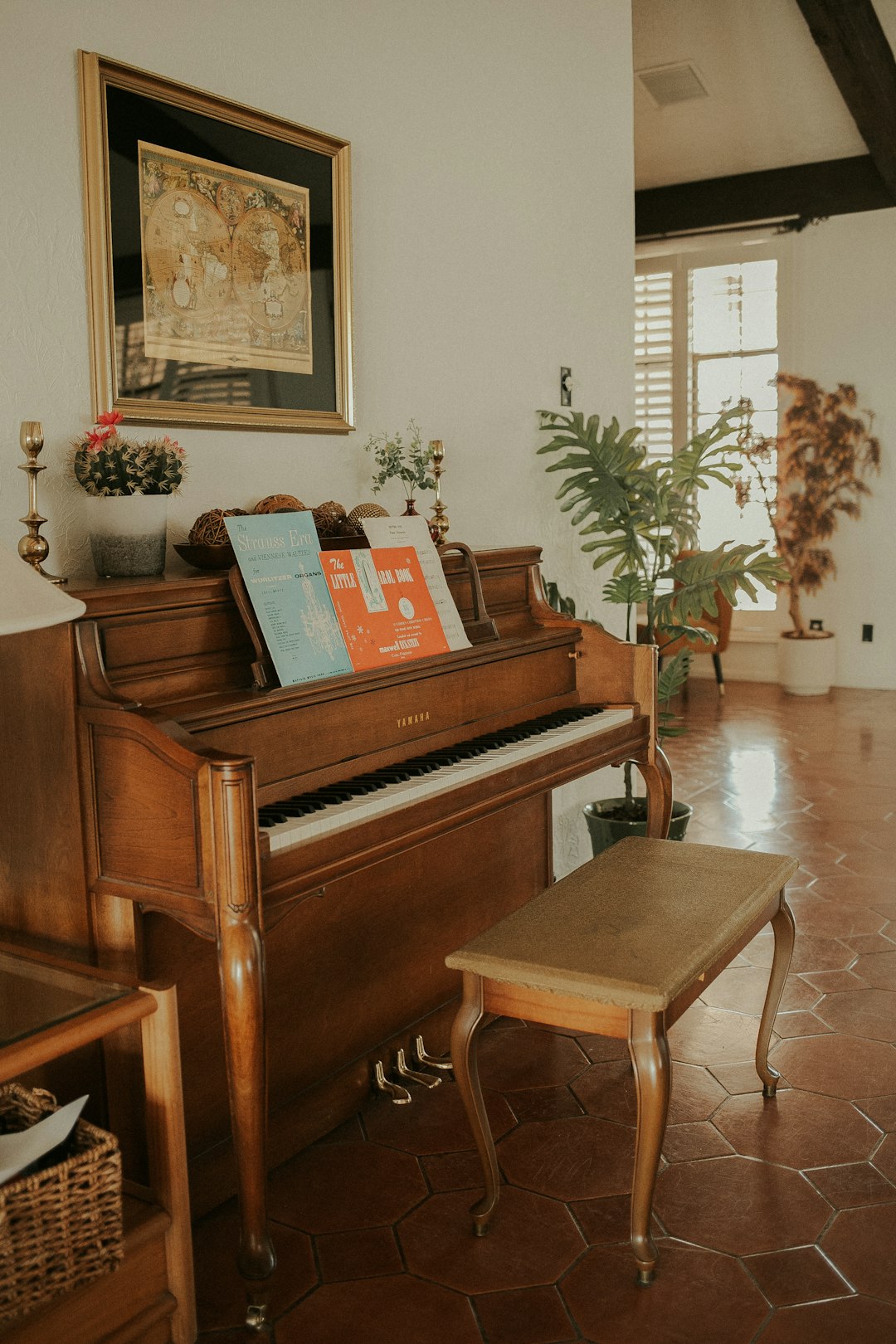
Choosing your first piano is like picking the perfect travel companion for a lifelong musical adventure. Whether you lean toward the warm, resonant charm of an acoustic piano or the versatile, maintenance-free convenience of a digital piano, the key is finding an instrument that inspires you to play every day.
If you’re considering the Casio Privia PX-160, here’s the lowdown from our Piano Brands™ experts:
Positives
- Authentic weighted keys with Tri-Sensor Scaled Hammer Action II, great for developing proper finger strength and technique.
- High-quality sound sampled from a 9-foot concert grand, offering rich dynamics and expression.
- Connectivity options for USB and headphones, perfect for silent practice and recording.
- Compact and portable, ideal for small spaces and easy transport.
- Affordable entry-level professional digital piano, suitable for beginners and intermediate players alike.
Negatives
- Sound, while excellent for a digital piano, is still sampled and may lack the organic resonance of a true acoustic.
- Limited onboard features compared to some higher-end digital pianos.
- Speakers may not fill large rooms with sound, so external amplification might be needed for performances.
Our Take
For beginners serious about learning piano, the Casio Privia PX-160 strikes a fantastic balance between authentic feel, sound quality, and affordability. It’s a solid investment that will serve you well as you grow your skills. If you crave the acoustic piano experience but face space or budget constraints, this digital piano is a brilliant first choice.
Remember, the best piano is the one that keeps you motivated to practice and play. So, take your time, try a few models, and trust your instincts. Your perfect piano is waiting to be discovered!
Recommended Links
👉 CHECK PRICE on:
-
Casio Privia PX-160:
Amazon | Musician’s Friend | Sweetwater | Casio Official Website -
Yamaha P-125:
Amazon | Musician’s Friend | Sweetwater | Yamaha Official Website -
Roland FP-10:
Amazon | Musician’s Friend | Sweetwater | Roland Official Website
Recommended Books for Beginners:
- Alfred’s Basic Adult Piano Course: Lesson Book, Level 1 – Amazon
- Piano Adventures by Nancy and Randall Faber – Amazon
- How to Play Piano: Everything You Need to Know to Play the Piano by James Rhodes – Amazon
FAQ: Burning Questions Answered
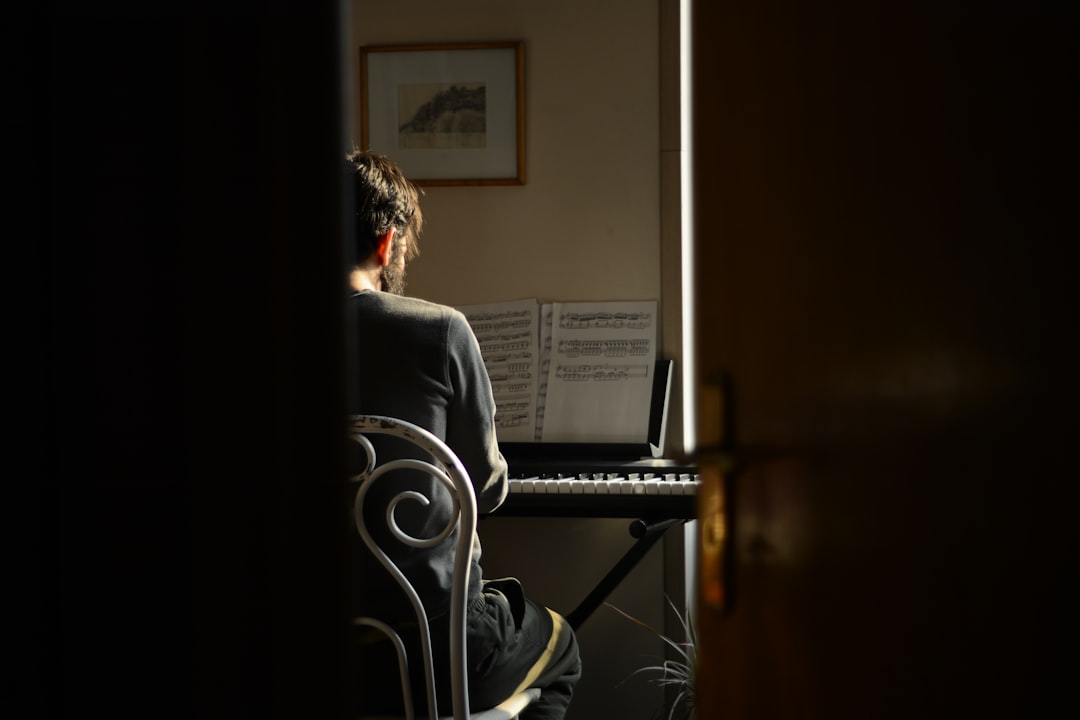
What are the main differences between acoustic and digital pianos for beginners?
Acoustic pianos produce sound mechanically by hammers striking strings, offering rich, organic tones and nuanced touch response. They require regular tuning and maintenance, are heavier, and usually cost more upfront. They are ideal if you want the authentic piano experience and have space and budget.
Digital pianos use sampled or modeled sounds and electronic speakers. They offer portability, headphone use for silent practice, and often include features like recording and connectivity. They require minimal maintenance and are generally more affordable. For beginners, digital pianos like the Casio Privia PX-160 provide a realistic feel with weighted keys, making them excellent starter instruments.
Read more about “🎹 Top 10 Best Acoustic Piano Makers to Know in 2025”
How much should I spend on my first piano, and what features should I prioritize?
Your budget can vary widely, but for a quality beginner digital piano, expect to invest in the $500 to $1500 range. Prioritize:
- Weighted, touch-sensitive keys to develop proper finger strength.
- Full 88 keys to cover the entire piano range.
- Good polyphony (at least 64 notes) to handle complex pieces.
- Sound quality that mimics an acoustic piano.
- Pedal functionality, ideally a sustain pedal.
- Connectivity options like USB/MIDI for learning apps and recording.
Avoid very cheap keyboards with unweighted keys or fewer than 88 keys, as they can hinder your progress.
What are the best digital piano brands for those on a budget, and which models are recommended?
For budget-conscious beginners, Casio, Yamaha, and Roland stand out:
- Casio Privia PX-160: Excellent weighted keys and sound quality at an affordable price.
- Yamaha P-125: Renowned for its authentic feel and sound.
- Roland FP-10: Premium key action and sound modeling in a compact package.
Each brand has its strengths, but all offer reliable, beginner-friendly models with solid build quality and features.
Are portable keyboards a good alternative to full-size pianos for beginners, or should I invest in a full-size instrument?
Portable keyboards often have fewer keys (61 or 76), unweighted or semi-weighted keys, and limited touch sensitivity. While they are great for casual play or very young children, they do not provide the full range or authentic feel necessary for serious piano study.
If you’re committed to learning piano, investing in a full-size (88-key), weighted digital piano is highly recommended. It ensures proper technique development and a smoother transition to acoustic pianos if you choose to upgrade later.
Reference Links
- Casio Official Website
- Yamaha Official Website
- Roland Official Website
- How to Buy a Piano – The Ultimate Guide | Pianote
- Liberty Park Music: How to Choose the Right Piano
- Pianotels: The Best Piano for Beginners
- Pianote: Piano Buying Guide
- Piano Brands™ Digital Pianos Category
- Piano Brands™ Piano Brand Guides


